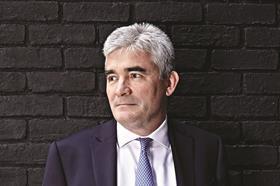Company in compulsory liquidation

Carillion has gone under ending more than 100 years of history, leaving thousands of jobs at risk and a host of subcontractors facing the prospect of not being paid.
The move came after discussions over the weekend between the firm, its lenders and the government failed to reach a deal to save the company.
In a statement to the Stock Exchange this morning, the firm said: “Those discussions have not been successful and the board of Carillion has therefore concluded that it had no choice but to take steps to enter into compulsory liquidation with immediate effect.
“An application was made to the High Court for a compulsory liquidation of Carillion before opening of business today and an order has been granted to appoint the Official Receiver as the liquidator of Carillion.”
Accountant PricewaterhouseCoopers has been appointed as Special Managers, to act on behalf of the Official Receiver.
Carillion chairman Philip Green said: “This is a very sad day for Carillion, for our colleagues, suppliers and customers that we have been proud to serve over many years. Over recent months huge efforts have been made to restructure Carillion to deliver its sustainable future and the Board is very grateful for the huge efforts made by [interim chief executive] Keith Cochrane, our executive team and many others who have worked tirelessly over this period.
“In recent days however we have been unable to secure the funding to support our business plan and it is therefore with the deepest regret that we have arrived at this decision.”
He said the government will provide funding to maintain the public services run by the firm. “We understand that HM Government will be providing the necessary funding required by the Official Receiver to maintain the public services carried on by Carillion staff, subcontractors and suppliers.”
It is believed that Carillion’s main creditors, which include HSBC, RBS and Santander, would only lend the firm more money if the government could guarantee some of Carillion’s debt repayments – in effect asking the taxpayer to bail out a private company.
Carillion, whose new chief executive Andrew Davies (pictured) was due to formally start work at the firm a week today, employs more than 40,000 people – including 20,000 in the UK.


























No comments yet